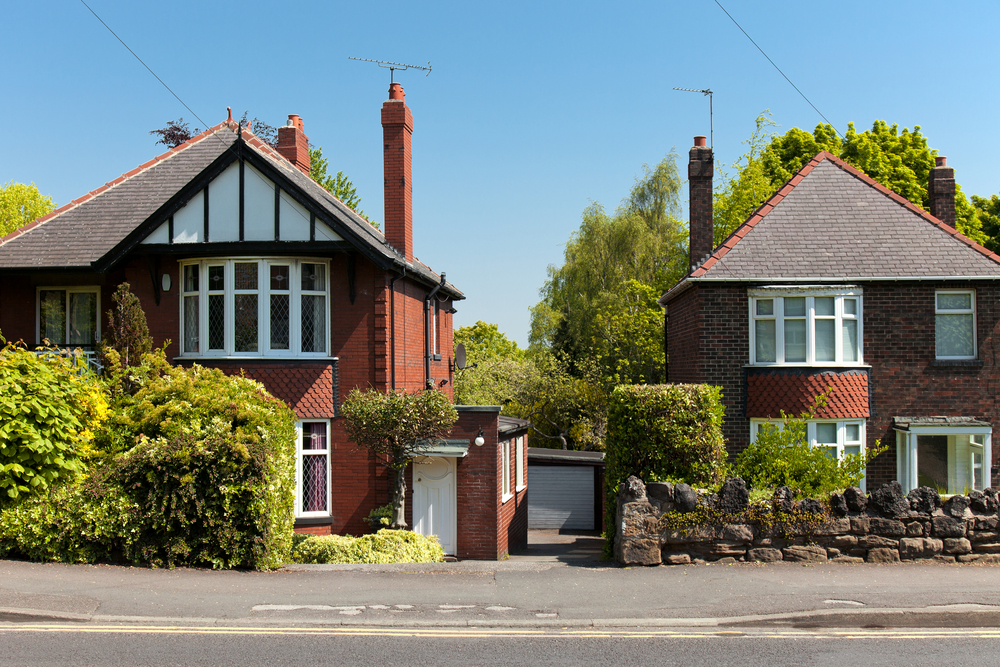Household Bills
House prices fall at fastest rate for 14-year low as rents surge during ‘deathly quiet’ August

House prices are set to continue falling as surveyors noted the most negative reading for declines in 14 years during August.
The Royal Institution of Chartered Surveyors (RICS) UK Residential Survey found that when asked about house prices during the month, surveyors gave a net score of -68%, which was down from -55% the prior month. This was also noted as the most negative reading since 2009.
Surveyors expect house prices to continue to fall and gave a score of -67% for activity over the next three months. This was more negative than the -60% reading in July.
For the year ahead, it is predicted that house price growth will stay negative with surveyors giving a score of -48% for the next 12 months, which was relatively unchanged from scores of -49% in both June and July.
Simon Rubinsohn, chief economist at RICS, said: “The latest round of feedback from RICS members continues to point to a sluggish housing market with little sign of any relief in prospect.
“Buyer enquiries remain under pressure against a backdrop of economic uncertainty and the high cost of mortgage finance. Meanwhile, prices are continuing to slip albeit that the relatively modest fall to date needs to be seen in the context of the substantial rise recorded during the pandemic period. Critically, affordability metrics still remain stretched in many parts of the country.”
Dented buyer demand
RICS said high mortgage rates were continuing to put pressure on house prices, buyer demand and agreed sales.
This was evident in the decline for new buyer enquiries, which dropped marginally from a score of -45% to -47%. RICS said this signified a continued drop over the last few months.
Agreed sales received the weakest surveyor sentiment since the beginning of the pandemic, with a response score of -47%. RICS said this downturn was apparent across all regions in the UK.
Looking ahead, surveyors expect a modest improvement in agreed sales and recorded a score of -38% for activity over the next three months, which was slightly better than the opinions in July which garnered a score of -45%.
In the long term, it was predicted that agreed sales would stabilise with a net balance score of negative 5%. This was compared to a reading of -25% in July.
Listing times rise and stock falls
The time from listing to completion increased to an average of 20 weeks in August. This was longer than 19 weeks a few months ago and a stretch on the 16-week average recorded in late 2021.
There was less housing stock coming to market in August, as the score for new instructions came to -26%, which was a significant fall on -17% in the previous month.
The number of market appraisals being taken was lower than in the last 12 months, with a score of -40%.
‘Deathly’ quiet August
Sarah Coles, head of personal finance at Hargreaves Lansdown said August was always quiet but “this was deathly”.
She added: “Prices are falling, but not fast enough to convince buyers to take the plunge. Those who are prepared to make an offer are driving a hard bargain. Sellers, meanwhile, are refusing to budge as far as they need to in order to secure a sale. It means fewer sales, and it’s taking much longer for property to shift.
“Sluggish sales have a knock-on effect, because it gets more difficult to put a chain together. Even when they succeed, it takes so long that buyers get cold feet about paying a price they offered months ago. They want to pull out or renegotiate, and as a result, it’s getting harder to keep chains intact.”
Coles said there was hope that the market would pick up in September but with prices and rates still relatively high, it could take a while for buyer enthusiasm to return.
“The question is how much damage will be done to house prices in the interim,” she added.
Rents set to climb
Tenant demand in the rental market stayed high in August as the stock of available properties continued to fall.
The score for tenant demand came to 47% and this applied to all regions in the UK.
However, new landlord instructions remained in the negative at -20%. Anecdotally, surveyors said landlords were exiting the market which RICS said was leading to a further imbalance between supply and demand.
Over the next three months, the cost of rent is expected to rise significantly with surveyors giving a 60% response score for their predictions.
Rubinsohn added: “The other side of the softer demand in the sales market is the continuing strength of rental demand. The yawning gap with rental supply is clearly visible in the RICS Rent Expectations indicator which remains close to an all-time high.
“Anecdotal comments from contributors that landlords are leaving the sector suggests the challenging environment for tenants is unlikely to improve any time soon.”